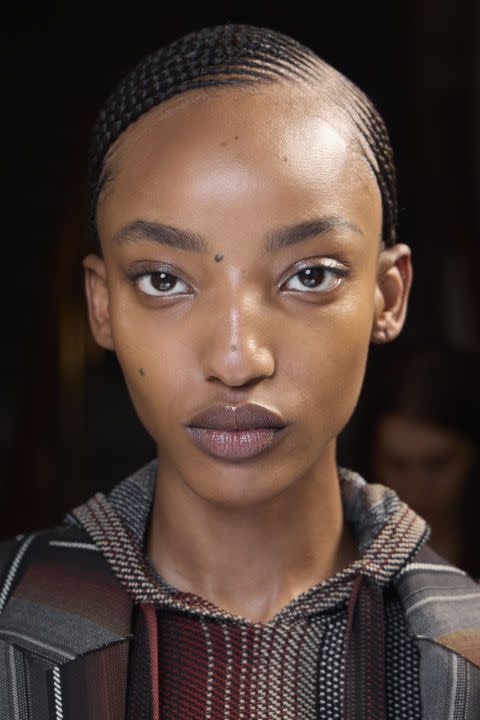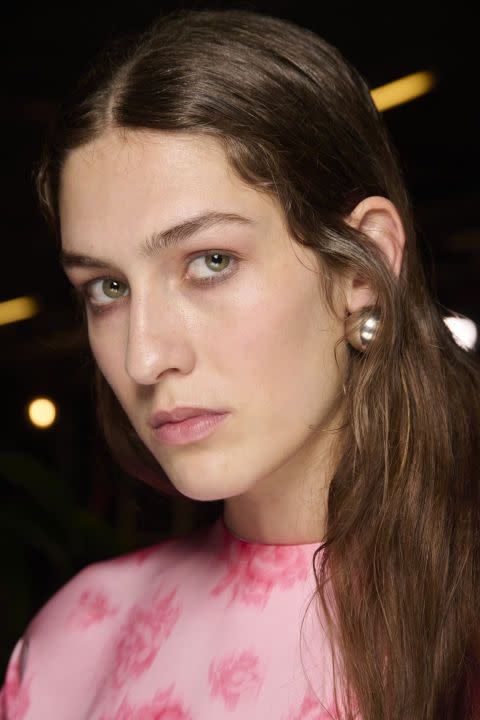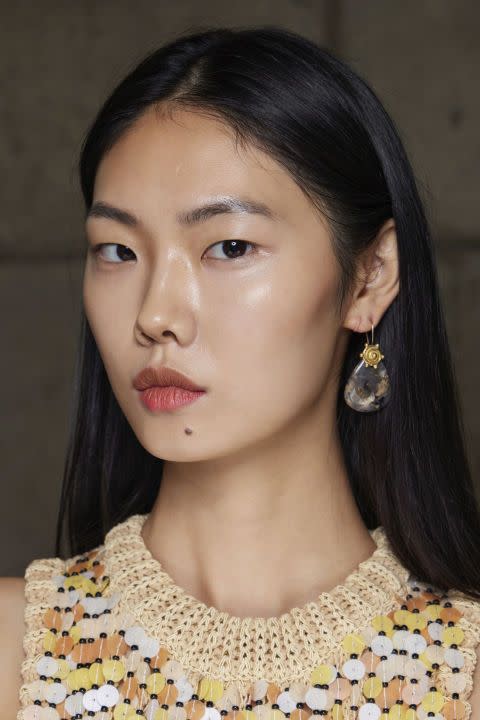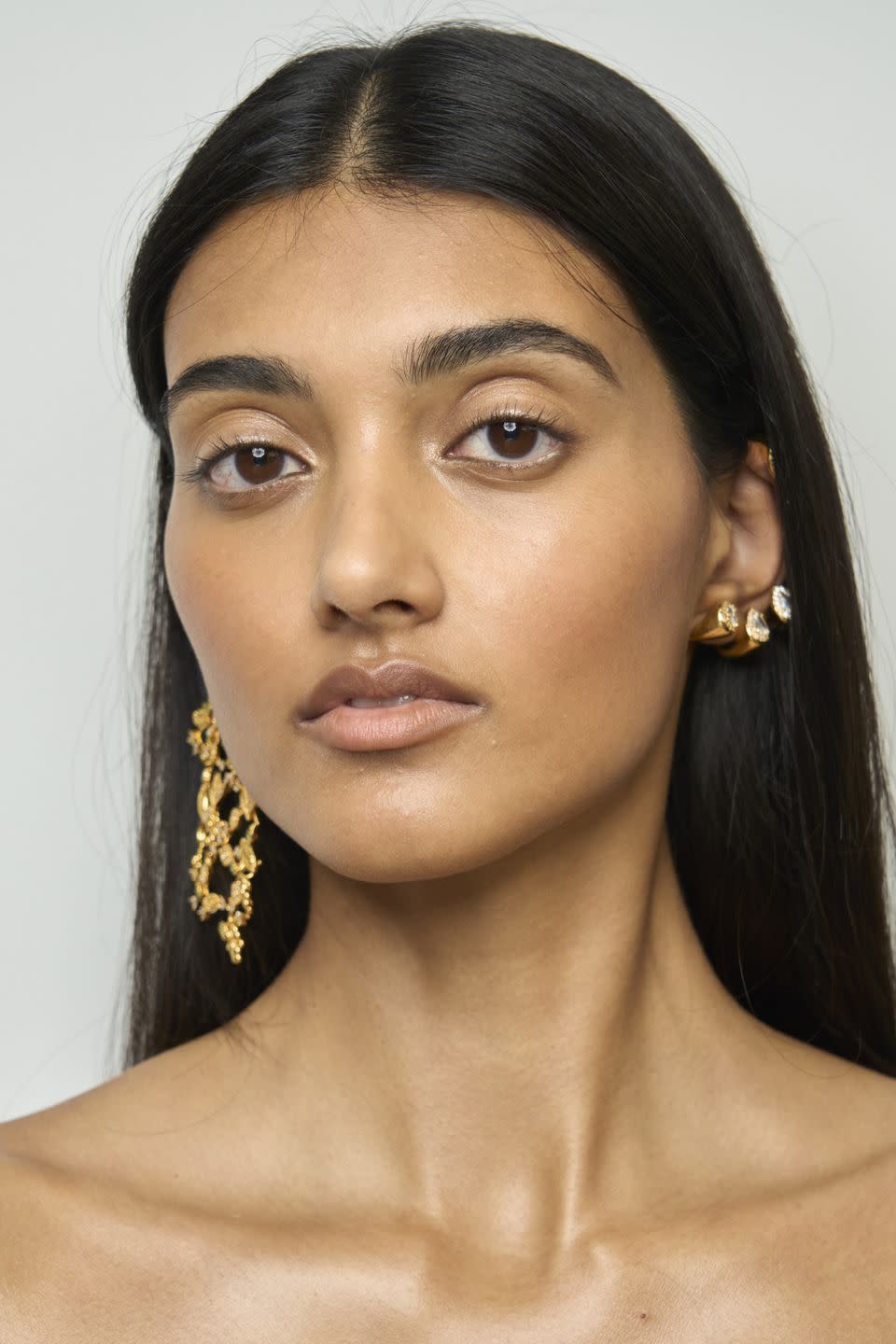I'm A Beauty Editor Who's Just Completed A Course Of Tretinoin. Here's What You Need To Know.

If you're experiencing pustular blemishes that feel sore to the touch, an influx of new pimples every other day and/or stubborn spots that continue to brew under the skin with no end in sight, it's a safe bet that you've done plenty of research into acne treatments and noticed that tretinoin is one of the most commonly recommended ingredients.
As a beauty editor who's tried everything from tea tree (nothing more than a refreshing scented oil for my spots) and salicylic acid to antibiotics to treat her own acneic complexion, I've found tretinoin to be incredibly effective. However, there are certain caveats to the treatment, and it's important to remember that acne cannot be 100% cured, only managed.
Ahead, a comprehensive explainer on what tretinoin is and everything you need to know before trying it.

What is tretinoin?
Available as a topical medication, tretinoin is a retinoid: a vitamin A derivative, which sits in the retinoid family alongside the more widely known retinol and retinal. It is primarily used to treat acne and photo-damaged skin.
FIND OUT MORE ON ELLE COLLECTIVE
In the UK, tretinoin cream is only available via prescription through a GP, dermatologist or online dermatology services such as Klira, Dermatica or Skin + Me. Essentially, these services require you to fill in a comprehensive questionnaire about your skin, upload some images and a practitioner will prescribe your tretinoin – if, of course, they believe you really need it. I've tried all three, and found that Klira worked best for my own skin due to the gentler base, which plays nicely with my fragile skin type. If you can't make your way to a dermatologist, GetHarley does an excellent job of connecting you to one virtually.
How does tretinoin work?
'It works by promoting skin cell turnover, which helps to clear blocked pores and reduce the formation of new acne lesions. Additionally, tretinoin can stimulate collagen production which is why we use it to help improve the appearance of fine lines, wrinkles and hyperpigmentation,' explains consultant dermatologist and founder of Self London, Dr Anjali Mahto.
'Tretinoin has a mild effect on reducing sebum production. However, this effect may not be long-term once the treatment is stopped completely,' adds consultant dermatologist Dr Nicole Chiang.

Is tretinoin the same as retinol?
While tretinoin and retinol are both vitamin A derivatives, the former is much more potent and works faster - which is why it is only available through prescription.
'Retinol, on the other hand, is a milder, over-the-counter version that must be converted into retinoic acid by the skin before it can take effect. It’s therefore slower to yield results,' says Dr Mahto.
What are the side effects of tretinoin?
As skin-cell renewal is sped up, you might find your complexion feeling parched, with peeling, redness and sensitivity all potentially on the cards.
'It's therefore essential to apply sunscreen daily while using tretinoin, as it can make the skin more susceptible to sunburn. In some cases, the skin may also experience temporary worsening of acne before improvement occurs,' adds Dr Mahto: a part of the journey known as the tretinoin purge.
These side effects should diminish once your skin adjusts to the tretinoin, but your provider should also offer advice on how to navigate it. I relied on very gentle formulas to supplement the rest of my routine. That meant a milky cleanser in the AM/PM, a soothing serum, and a ceramide-rich, simple moisturiser along with SPF50 in the daytime.
Be careful with facials too, if you do get them. Always disclose your tretinoin usage before any treatments.

What about the tretinoin dosage?
Always start low to avoid over-sensitising your skin. 'Tretinoin cream is best introduced at a low concentration (e.g. 0.025%) initially, and this can be slowly increased over time. This can help the skin to build up some tolerance to its irritative effects, and to prevent a bad flare of acne at the start of treatment,' suggests Dr Chiang.
How to use tretinoin?
I'm always cautious about introducing new - especially potent - ingredients into my routine, so I used my tretinoin cream twice a week and a barrier-restoring serum on nights without tretinoin. Once my skin started acclimatising to the tretinoin, I upped it to every other night before using it every night with one night break each week.
According to Dr Chiang, you can also create a 'tretinoin sandwich' by applying your moisturiser, followed by tretinoin and the moisturiser again.
How long does it take to see results?
Timelines differ depending on the individual. I found my skin getting worsening for the first month or so, with new blemishes erupting. The 'tretinoin purge' is not uncommon, as the acceleration of skin cells can increase blocked pores before it clears.
After the initial purge, my skin did slowly clear up within the next two to three months. A course of tretinoin usually lasts six to nine months, although lower doses might take longer.

Who should avoid tretinoin?
The best candidates for tretinoin cream are those who have oily skin, acne spots and acne scars, and can tolerate the skin irritation and dryness, especially in the early weeks of the treatment. They'll also need to follow a strict skincare regime that potentially needs to be maintained long-term.
'However, pregnant or breastfeeding women and those with extremely sensitive or eczema-prone skin should avoid using tretinoin,' says Dr Mahto.
My verdict
While my skin did clear up for a few months, around the eight-month mark, I found the irritation and sensitivity that comes from tretinoin unbearable on my own complexion. I've had persistent acne for more than a decade, and tretinoin didn't seem to cut it. I decided to go on a course of isotretinoin (a prescription course of oral medication that needs close monitoring from a dermatologist), which has now noticeably clarified my skin.
After my course of isotretinoin, I was recommended to use Differin (a new generation retinoid) cream by my dermatologist in order to prevent new acne spots. I've also used Klira for the same reason, and found that it works best for my easily sensitised complexion. I don't use it as religiously: more so for skin maintenance.
Ultimately, there are many success stories from tretinoin - I've heard many from friends who do not have a long history of acne - but I personally don't think you must persevere if your complexion feels extremely sore and uncomfortable.
Speak to your doctor, as there will be other alternatives. AviClear, for example, is a new laser treatment for treating mild, moderate and severe acne across all skin tones. It shows promising results, and is safe for those who are planning to get pregnant.
ELLE Collective is a new community of fashion, beauty and culture lovers. For access to exclusive content, events, inspiring advice from our Editors and industry experts, as well the opportunity to meet designers, thought-leaders and stylists, become a member today HERE.
You Might Also Like


